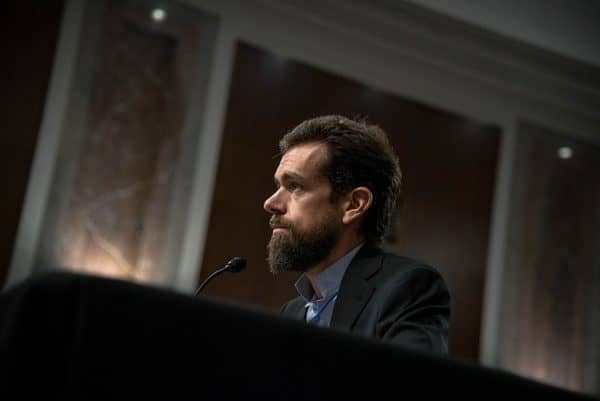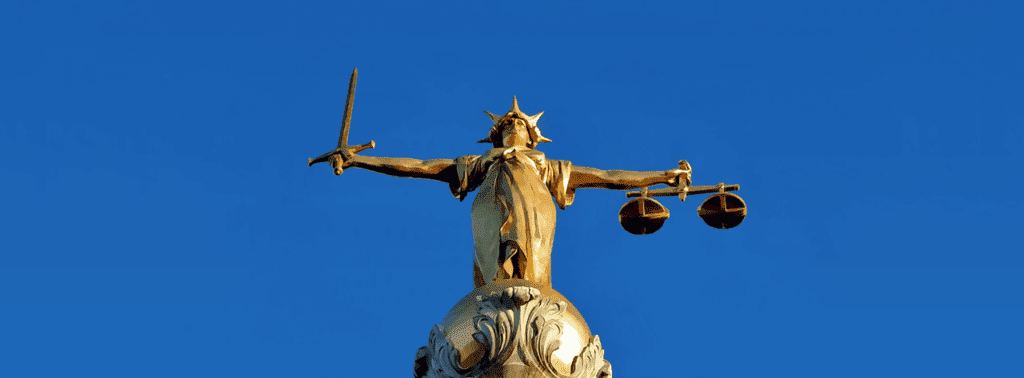What Finally Happened in Our Suit Against Twitter
Jared Taylor, American Renaissance, July 15, 2020
As you may know, in 2018 I and American Renaissance sued Twitter after it banned our accounts. After some initial successes, we lost on a couple of crucial rulings and decided not to appeal. Here is the story.
In 2011, I started a Twitter account and American Renaissance set up a corporate account. In 2017, Twitter gave me its blue-check “verification badge,” and by December, I and AmRen had more than 70,000 combined followers. On the 18th of that month, Twitter permanently banned both accounts without explanation or warning. We immediately appealed the bans and were told by email that we were “violating Twitter’s Terms of Service, specifically the Twitter Rules against being affiliated with a violent extremist group.” This was, of course, nonsense, but we were never able to learn from Twitter what “violent extremist group” it had in mind or what our “affiliation” was. We decided to sue Twitter for censorship.
We filed a complaint, which went before Judge Harold Kahn in the Superior Court of California on March 14, 2018. We had three grounds to believe Twitter’s action in banning us was illegal, and they are laid out in the complaint below.
After initial briefs and a hearing, Twitter succeeded in persuading Judge Kahn to dismiss two of our grounds for the suit, but on June 18, 2018, he upheld our claim under California’s Unfair Competition Law (UCL). Judge Kahn called our complaint “very eloquent,” adding that it was “hard to imagine a clearer public interest lawsuit,” and that “it goes to the heart of free speech principles that long precede our constitution.”
Our claim was that Twitter could be, in effect, guilty of false advertising by boasting about its support for free speech and then banning ideas it didn’t like. At the time we opened our accounts, Twitter’s terms of service reflected its claim to be “the free-speech wing of the free-speech movement.” It promised to allow everything except: (1) threats of violence (2) promoting illegal activity (3) copyright or trademark violation (4) impersonating people (5) publicizing the personal information of others. Needless to say, neither I nor AmRen ever violated those rules. Judge Kahn noted that after we had opened our accounts, Twitter changed its rules and decided it could ban any user for any reason. He agreed that this was potentially an “unconscionable” violation of the law.
At oral argument, Judge Kahn asked opposing counsel this question: “Twitter can discriminate on the basis of religion, or gender, or sexual preference, or physical disability, or mental disability?” Twitter’s lawyers admitted that it claimed that right. Judge Kahn disagreed and ordered our suit to move forward. No suit against a social-media ban had ever reached that stage, and we prepared for battle. We looked forward to taking the testimony of Twitter executives — we would put Twitter CEO Jack Dorsey under oath and make him try to justify censorship.

Jack Dorsey, Twitter founder. (Credit Image: Mark Warner / Wikimedia)
What then happened baffled both our legal team and Judge Kahn. Ordinarily, when a judge orders a case to move forward, the defendant — in this case, Twitter — has no choice but to fight it out. If it loses, it can appeal. Instead, Twitter petitioned the California Court of Appeal for a writ of mandate and immediate review, something so unusual it left even our appellate practice lawyers scratching their heads. Twitter claimed that, win or lose, merely to have to face a suit of this kind would cause it irreparable damage. Twitter persuaded Facebook, Google, Reddit, Snap (Snapchat), TripAdvisor, Yelp, and others to file a joint brief, agreeing with Twitter that letting our suit go forward would “open a Pandora’s box of litigation burdens and claims of liability against providers.”
The California Court of Appeal didn’t even give our lawyers a chance to reply. It issued a ruling “commanding” Judge Kahn to reverse his original finding that we had a valid case against Twitter based on California’s Unfair Competition Law. When a superior court orders a trial judge to reverse himself, he doesn’t have much choice, and Judge Kahn did as he was told. Our lawyers asked him to reconsider, but on March 8, 2019, he issued his final ruling, in which he threw out our UCL grounds for suing Twitter.
It was clearly painful for Judge Kahn to submit to this completely unexpected order from a higher authority. His conclusion, which is worth quoting at some length, referred to Section 230 of the Communications Decency Act of 1996. This section has widely been interpreted — mistakenly, in the view of our lawyers — as giving social media companies the right to censor content and ban users for any reason. We had argued that our unfair-practices claim against Twitter didn’t even fall within the scope of Section 230, no matter how it is interpreted. In his conclusion, Judge Kahn also referred to some of the legal cases (their names are in italics) that he had considered in initially ruling in our favor:
In arguing that their UCL claim fell outside the scope of Section 230, plaintiffs [that’s us] relied not only on Demetriades, but also the Ninth Circuit decisions in Barnes (cited in the Alternative Writ Order) and Doe v. Internet Brands and several other published and unpublished federal decisions. Barnes, Internet Brands, and a few other federal decisions contain helpful language for plaintiffs, if not outright holdings in their favor. [emphasis added] But those cases are only of persuasive value and must give way to the binding authority of the California court decisions. This is true even though Barnes and some of the other federal decisions supportive of plaintiffs’ position have been cited and discussed by California courts. Barnes, Internet Brands and the other federal cases (as well as Demetriades) relied on by plaintiffs show that plaintiffs’ argument that their UCL claim survives the defense of section 230 finds support in the text of that section, is far from frivolous, and might some day even be adopted by the United States Supreme Court. [emphasis added] In the absence of a United States Supreme Court authoritative decision, my job is to apply the California courts’ interpretation of section 230 . . . .
Judge Kahn was all but saying that he was right and the California Court of Appeal was wrong. He hinted that the US Supreme Court might eventually agree with him and pave the way for litigation like ours. So far, no anti-censorship case has made it that far, so the justices have not ruled.

Image Credit: Wikimedia
How did we react to Judge Kahn’s coerced reversal of his initial position? We could have appealed — but we would have been filing our briefs with the very same bench that had overruled Judge Kahn. It’s true that the judges had not heard our side of the argument, and an appeal would have forced them to consider it.
Litigators love to fight; it’s what they are trained to do, but our lawyers said it was time to stop. They reasoned that the chances of the California Court of Appeal changing its mind were close to zero. But there was an even more important reason. The court’s “command” to Judge Kahn to reverse himself was, for technical reasons, not a ruling that set a legal precedent. A formal rejection of our appeal would have set a precedent, making it much harder for any other plaintiff to sue social media companies in that jurisdiction — and the San Francisco Bay area, where so many of those companies are headquartered, is the ideal place to sue.
Finally, no matter how airtight our case was against Twitter, a plaintiff that anyone has ever called a “white supremacist” is fighting a strong headwind. By the time Judge Kahn reversed himself, Twitter was banning conservatives for increasingly frivolous reasons. I decided that if, in the current hysterical climate over “racism,” the identity of the plaintiff can be as important as the legal arguments, it would be better to withdraw so that plaintiffs who had a better chance of winning could carry on the fight.
And so, I decided not to appeal. A victory by anyone against social-media censorship will benefit everyone, and I didn’t want to be the cause of an appeals court ruling that could jeopardize anyone’s chances. It would have been nice to have been the victor in Taylor v Twitter, but broader considerations made it wiser to withdraw. So far, no other plaintiff has made it to the point we did — of a trial judge ordering the case to proceed — but I still think we made the right decision.
We are fighting many battles on many fronts. We must choose them carefully and concentrate our forces where we have the greatest chance of success.
I am sorry that I cannot report a great triumph for freedom of speech, but I am deeply grateful to everyone who sent money to help us pay for the suit. As you know, every setback only redoubles our determination. We will never give up.















